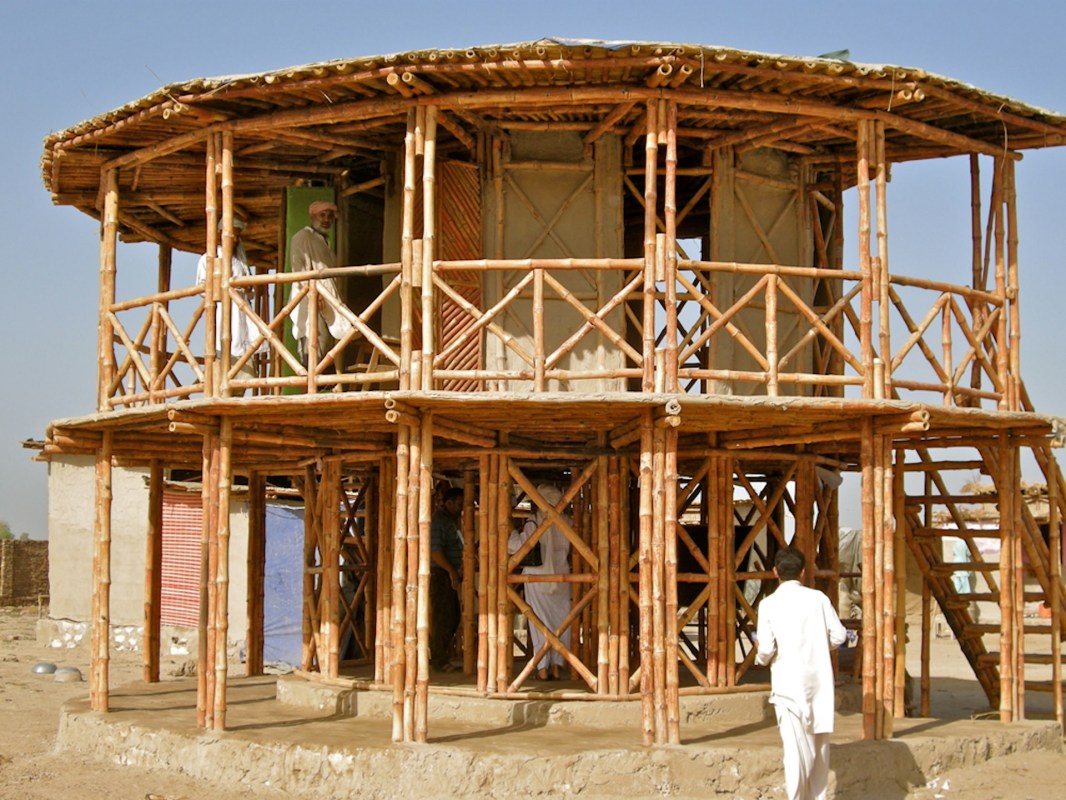As extreme weather events become more frequent and more intense, architects have adapted their designs to create homes that are more versatile and resilient. One such architect is Pakistan's Yasmeen Lari, the founder of Heritage Foundation of Pakistan and designer of a type of bamboo hut that is helping vulnerable Pakistanis stay protected from floods.
Though bamboo has not been traditionally grown or used in Pakistan, Lari discovered that it is the ideal building material to use for prefabricated structures that can be built quickly, cheaply, and easily. In the past year, the Heritage Foundation of Pakistan has helped to build more than 5,000 of these structures, which cost only 25,000 Pakistani rupees ($88) to make.
Bamboo, which is technically a type of grass, can also be grown very quickly — it can be ready to harvest in only three years — compared to timber. It also absorbs carbon, meaning that it helps clean the air and cool the planet.
"All our work is entirely zero-carbon," Lari said, "and because of its low cost and participatory low-tech approach, this happens to be the only methodology that has been scaled up to thousands."
The prefabricated bamboo huts are even helping to protect against flooding. Because they can be built on a platform raised off the ground, they are less vulnerable to being swept away by floodwaters. This is especially important in the Sindh province of Pakistan, where floods displaced 33 million people last year.
"Architects call it natural steel," noted Liu Kuwei, an engineer and member of the International Bamboo and Rattan Organization.
Crucially, Lari's design allows Pakistanis who have lost their homes to flooding to build their new bamboo homes themselves, sometimes with only the assistance of her foundation's free YouTube video.
For Lari, this aspect of the project is crucial to moving past what she calls the "international colonial charity model" that "believes in treating people as victims, giving them handouts, telling them to use concrete and all kinds of materials that are going to be even more destructive to the planet."
Join our free newsletter for weekly updates on the coolest innovations improving our lives and saving our planet.









